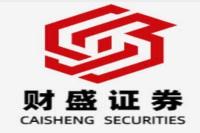Unlocking the Potential: A Deep Dive into China's Draft Private Economy Promotion Law
Meta Description: China's draft Private Economy Promotion Law aims for fair competition, improved investment, robust tech innovation, and stronger legal protection for private businesses. This comprehensive guide analyzes its key provisions and impact.
Imagine a landscape brimming with entrepreneurial spirit, where innovative ideas flourish, and private enterprises are empowered to reach their full potential. This isn't just a dream; it's the ambitious goal of China's newly proposed Private Economy Promotion Law (PEPL). This landmark legislation, currently in its draft phase, promises to reshape the economic landscape, fostering a more equitable and supportive environment for private businesses. Forget dry legal jargon – we'll unravel the intricacies of this crucial document, analyzing its implications for entrepreneurs, investors, and the broader Chinese economy. We'll explore the key provisions, examine its potential impact on various sectors, and address the burning questions surrounding its implementation. Prepare to gain invaluable insights, backed by rigorous analysis and a clear understanding of the legal frameworks shaping China's economic future. This isn't just another news article; it's your comprehensive guide to navigating the evolving legal landscape for private enterprise in China. Get ready to gain a competitive edge and understand the opportunities and challenges awaiting businesses in this dynamic market. We'll cut through the noise, providing clear, concise, and actionable information for decision-makers and those seeking to understand the future of business in China. This in-depth analysis will equip you with the knowledge you need to effectively plan, strategize, and thrive in the evolving Chinese business environment. Let's dive in!
Fair Competition: Leveling the Playing Field for Private Enterprises
The PEPL's cornerstone is establishing a truly level playing field for private enterprises. Forget the days of hidden barriers and unequal access. The draft boldly addresses this by emphasizing "equal access" in all areas unlisted in the national negative list for market access. This means private companies enjoy the same rights as state-owned enterprises (SOEs) to enter various markets. The implementation of the Fair Competition Review System is another crucial element. This system ensures government policies are thoroughly vetted to eliminate any biases against private sector participation. This seemingly simple step is revolutionary—it promises transparency and accountability, giving private businesses confidence in their ability to compete fairly. Goodbye to discriminatory policies; hello to a transparent and fair market!
The draft goes beyond simply stating intentions; it outlines practical measures. The law tackles issues such as government procurement, ensuring private businesses aren't systematically excluded from bidding processes. This is more than just a legal victory; it's a monumental shift toward creating a robust, dynamic, and competitive market. The emphasis on equal access to resources—including funding, technology, human capital, data, and land—further solidifies this commitment. This is not just about words on paper; it's about creating tangible changes that empower private businesses to thrive. Imagine a system where your business has the same opportunities as any other, regardless of ownership. This is the promise of the PEPL.
Investment and Financing: Fueling Growth and Innovation
Securing funding is often the biggest hurdle for startups and SMEs. The PEPL directly addresses this by outlining a comprehensive plan to improve the investment landscape. Support for private companies participating in national strategic projects is a significant step. This opens doors to large-scale projects, allowing private businesses to contribute meaningfully to national development, generating substantial returns and growth. This isn't just about government handouts; it's about creating opportunities for mutually beneficial partnerships.
Furthermore, the draft explicitly focuses on easing access to financing. The establishment of a risk-sharing mechanism between financial institutions and private businesses is a game-changer. This reduces the burden on individual companies, encouraging banks and other lenders to take more calculated risks on high-growth sectors. This is a significant step towards a more inclusive financial system. No more struggling to secure loans; the PEPL aims to create a supportive environment where funding is readily available for those with sound business plans.
The PEPL acknowledges the diverse needs of private businesses, particularly SMEs. The document encourages financial institutions to develop tailored financial products and services, catering to the specific requirements of different business sizes and stages. The emphasis on transparency and fair treatment in lending practices further contributes to a more robust and stable financial ecosystem. The days of biased lending practices are numbered; the PEPL aims for a future where all businesses have equal access to financial resources.
Technological Innovation: A Catalyst for Growth
China's ambition to become a global technological leader is clearly reflected in the PEPL. The draft actively encourages private businesses to participate in national technological advancements. This includes support for participation in research and development, access to crucial technological infrastructure, and the removal of regulatory barriers that hinder innovation. This is not just about promoting technology; it's about empowering the private sector to spearhead technological breakthroughs.
The PEPL recognizes the pivotal role of intellectual property (IP) protection in driving innovation. Stronger IP protection will incentivize private companies to invest heavily in R&D, knowing their innovations are safeguarded. This will attract foreign investment and boost the overall technological prowess of the nation. The PEPL champions innovation by promoting a fair and supportive ecosystem where ideas transform into tangible products and services. This results in greater economic growth and a more technologically advanced nation.
Regulatory Framework and Legal Protection
The PEPL establishes a clear and robust regulatory framework for private enterprises. This doesn't mean stifling innovation; rather, it aims to provide a stable and predictable environment where businesses can operate with confidence. Clear guidelines on labor laws, environmental regulations, and other critical areas ensure compliance, minimizing legal risks and fostering sustainable growth. This is a crucial step toward creating a mature and responsible business environment.
The law introduces strong legal protections for private businesses, safeguarding their rights against unfair practices and arbitrary actions. Mechanisms for addressing grievances and resolving disputes effectively are clearly outlined, ensuring businesses have recourse if their rights are violated. This creates a system of checks and balances, protecting the interests of both businesses and the government. Now, businesses can focus on their core operations, knowing their legal rights are secured.
Frequently Asked Questions (FAQs)
Q1: What is the primary objective of the Private Economy Promotion Law?
A1: The PEPL aims to create a fairer, more supportive, and predictable legal framework for the development of the private sector in China. It seeks to foster innovation, competition, and sustainable growth.
Q2: How does the PEPL address unfair competition?
A2: The law emphasizes equal access to resources and markets, implements the Fair Competition Review System, and prohibits discriminatory practices in government procurement and other areas.
Q3: What measures are proposed to improve access to financing for private enterprises?
A3: The PEPL advocates for developing risk-sharing mechanisms, encouraging financial institutions to offer tailored products and services, and improving access to credit and capital markets.
Q4: How does the PEPL support technological innovation?
A4: The law encourages private sector participation in national R&D initiatives, strengthens IP protection, and promotes access to technological infrastructure and resources.
Q5: What legal protections are provided to private enterprises under the PEPL?
A5: The PEPL provides strong legal protections against unfair practices, ensures access to effective dispute resolution mechanisms, and safeguards the rights of private businesses in various aspects of their operations.
Q6: When is the law expected to come into effect?
A6: The draft law is currently under review and open for public comment. The exact date of its implementation will be announced after the final version is approved.
Conclusion: A New Dawn for Private Enterprise in China
The PEPL represents a monumental shift in China's approach to private sector development. It's not just about tweaking existing regulations; it's about fundamentally reshaping the economic landscape to create a more inclusive and dynamic environment. The emphasis on fair competition, improved access to financing, robust technological innovation, and stronger legal protection signals a new era of collaboration and growth. While challenges remain in implementing these ambitious goals, the PEPL's vision sets the stage for a more prosperous and vibrant private sector in China, leading to significant economic and social progress. The future for private enterprise in China looks brighter than ever before.



